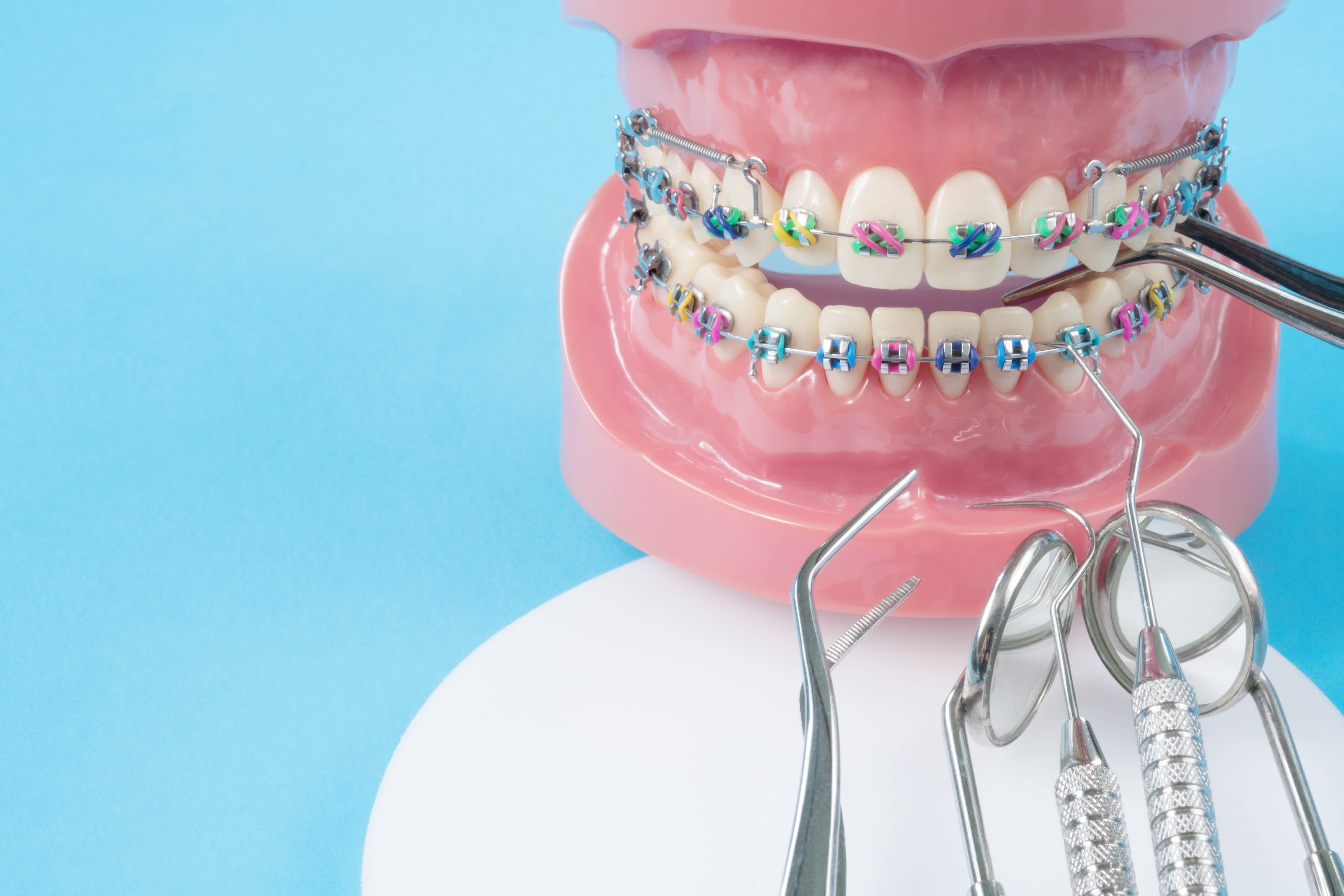If this is your first time using braces then you have some misconceptions about them. Do braces really hurt? Are they only for children? Can they set a metal detector off? Keep reading to find out!
If I kiss someone wearing braces, I could have my braces locked with theirs
 Kissing someone can be pretty challenging, but having braces while you do it can add a whole new curveball to your kissing game. But do not worry! Braces will have no impact on your relationships. It is impossible for your braces to lock in the middle of your kiss. Besides, they are not magnetic.
Kissing someone can be pretty challenging, but having braces while you do it can add a whole new curveball to your kissing game. But do not worry! Braces will have no impact on your relationships. It is impossible for your braces to lock in the middle of your kiss. Besides, they are not magnetic.
My braces always hurt
A little pain is normal when braces are fixed on or after tightening. Once you get used to it, voila! There’s no pain at all! Many people find wearing braces comfortable.
I need my wire to be changed at every appointment
 Your visits are to review your progress and make any changes to your treatment that will help you proceed. If your teeth have not moved as planned or you are nearing the end of your treatment, your orthodontist may decide to leave the wire as it is for a few more weeks.
Your visits are to review your progress and make any changes to your treatment that will help you proceed. If your teeth have not moved as planned or you are nearing the end of your treatment, your orthodontist may decide to leave the wire as it is for a few more weeks.
Braces are for children and teenagers only
The majority of people who seek orthodontic treatment are children, but adults get braces too [1]. Just like children and teenagers, adults can also have the same benefits from a better smile and better oral health by wearing braces. Although an adult’s teeth are no longer growing, braces treatment may take longer than they do for teenagers.
Braces set the metal detector off
Not all metals are made equally. The metal form used in braces is lightweight and are not usually ‘found’ by metal detectors. There must be enough metal present for a metal detector to go off. Even braces with fully metal brackets and wires are not strong enough to cross the threshold.
My teeth will stay straight after removing my braces forever
 Braces are one of the most successful ways of getting your teeth straight. But if you do not wear your retainer as your orthodontist suggests, your teeth will start drifting back to its original position. Once braces are removed, there is nothing preventing your teeth from shifting.
Braces are one of the most successful ways of getting your teeth straight. But if you do not wear your retainer as your orthodontist suggests, your teeth will start drifting back to its original position. Once braces are removed, there is nothing preventing your teeth from shifting.
I cannot eat my favourite foods anymore
Even with braces, you can still eat most of your favourite foods! All you need is a little extra care and planning for hard or crunchy foods, including slicing apples into smaller pieces and separating meat from the bone before eating. But you should avoid food that is chewy or sticky. [2]
I need to wear braces for a long time
This is a popular myth that people have to wear braces for a very long time. The average treatment length is only nineteen months! [3]
Braces attract fish’s attention
 There is no need to cancel your next dive. Some people say that people with braces cannot go scuba diving or swimming in the ocean because their braces will attract fish because they are drawn to shiny objects. The brackets used in today’s braces, especially in ceramic or tooth-coloured brackets, are not going to attract attention from unwanted fish or marine life.
There is no need to cancel your next dive. Some people say that people with braces cannot go scuba diving or swimming in the ocean because their braces will attract fish because they are drawn to shiny objects. The brackets used in today’s braces, especially in ceramic or tooth-coloured brackets, are not going to attract attention from unwanted fish or marine life.
It is hard to take care of braces
Taking care of braces is really easy. All you have to do is follow your orthodontist’s instructions such as keeping your appointments, cleaning your teeth regularly, and have your teeth professionally cleaned every 4-6 months.
Dr Enrica Sham is an Orthodontist and Clinical Director at TLC Dental Centre. Besides that, she also serves as a part-time clinical tutor at the Faculty of Dentistry, National University of Singapore.
Also, read more of Dr Enrica Sham's QnA here.




